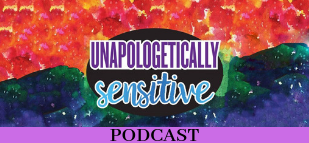Jen and I touch on so much in this episode: challenges setting boundaries; structure vs. the need for novelty (ADHD vs. autism), attachment injuries and bids for connection; the challenges and gifts of hard conversations; what neuro-affirming therapy looks like; PDA and focusing on others to reduce demands; masking; what comes up when someone suspects they are autistic or are recently diagnosed.
CO-HOST
Jen Perry, MSEd, MA, LPC
HIGHLIGHTS
Summary
In this conversation, Jen and Patricia discuss various topics related to parenting, boundaries, and self-discovery. They explore the challenges of adjusting to new structures and parenting roles, as well as the importance of partnering with children and acknowledging limitations. They also discuss the significance of modeling imperfection and repairing emotional availability. The conversation delves into navigating personal preferences and resistance, expressing needs and bids for connection, and the importance of setting boundaries and embracing autonomy. They also touch on the process of recognizing and embracing an autistic identity, as well as the roller coaster of emotions that can come with this realization. Overall, the conversation highlights the importance of self-reflection, authenticity, and deepening intimacy in relationships.
Takeaways
- Adjusting to new structures and parenting roles can be challenging but can also provide opportunities for growth and learning.
- Modeling imperfection and repairing emotional availability can strengthen relationships and create a sense of safety and trust.
- Setting boundaries and embracing autonomy are essential for self-care and maintaining healthy relationships.
- Becoming your own heroine in your life and your story
- Assessing what you want in relationships, and seeing if the people who are disappointing you are people you would choose
- Communicating when it you’re wanting a bid for connection
- Addressing our attachment wounds in relationship is really an act of service to the relationship
- The ongoing challenge between ADHD and the need for novelty and with autism wanting routine and structure
- Conflict and avoidance of conflict can be hard, and having difficult conversations can also be hard. How does it help the relationship?
- The importance of having autistic or neuro-affirming therapists and coaches since allistic practitioners can cause more trauma and harm
- If you’re recently diagnosed autistic or suspect you are autistic, you may experience skill regression, difficulty doing things you previously did, and your identify may be shaken up (there’s grief and anger there as well)
- Ways your PDA may be showing up and things you have learned to do to minimize having your nervous system activated
- You may have been socialized to be “other focused,” which makes it hard to know what you are wanting and needing, and it can be a form of masking, and it may reduce PDA and RSD
Recognizing and embracing an autistic identity can bring validation and understanding, but it can also be accompanied by a roller coaster of emotions and a need for self-reflection.
Chapters (adjust time for the addition of the introduction)
00:00 Introduction and Checking In
01:18 Adjusting to New Structure and Parenting
03:03 Partnering with Children and Acknowledging Limitations
04:23 Modeling Imperfection and Repairing Emotional Availability
05:05 Exploring Personal Challenges and Seeking Support
06:41 Navigating Personal Preferences and Resistance
08:08 Expressing Needs and Bids for Connection
09:35 Navigating Difficult Conversations and Repairing Ruptures
10:51 Taking Risks and Embracing Discomfort
12:40 Honoring Wounds and Attending to Healing
14:51 Setting Boundaries and Embracing Autonomy
16:40 Navigating Conflict and Deepening Intimacy
19:03 Recognizing Autistic Identity and Processing Emotions
23:53 Reevaluating Relationships and Prioritizing Values
27:10 Embracing Authenticity and Self-Reflection
31:57 Navigating the Roller Coaster of Autistic Identity
32:44 Conclusion
PODCAST HOST
Patricia was a Licensed Clinical Social Worker for over 17 years, but she is now exclusively providing coaching. She knows what it’s like to feel like an outcast, misfit, and truthteller. Learning about the trait of being a Highly Sensitive Person (HSP), then learning she is AuDHD with a PDA profile and RSD, helped Patricia rewrite her history with a deeper understanding, appreciation, and a sense of self-compassion. She created the podcast Unapologetically Sensitive to help other neurodivergent folks know that they aren’t alone, and that having a brain that is wired differently comes with amazing gifts, and some challenges. Patricia works online globally working individually with people, and she teaches Online Courses for neurodivergent folks that focus on understanding what it means to be a sensitive neurodivergent. Topics covered include: self-care, self-compassion, boundaries, perfectionism, mindfulness, communication, and creating a lifestyle that honors you
CO-HOST BIO
Jen Perry, MSEd, MA, LPC has been a psychotherapist for 20 years. She specializes in helping Highly Sensitive People thrive in love, work, and parenting Highly Sensitive Children. Jen is passionate about using mindfulness and compassion-based approaches to ameliorate human suffering.
LINKS
Jen’s Links
Email: Jen@heartfulnessconsulting.com
Jen’s website: https://heartfulnessconsulting.com/
Patricia’s Links
HSP Online Course–https://unapologeticallysensitive.com/hsp-online-groups/
Receive the top 10 most downloaded episodes of the podcast– https://www.subscribepage.com/e6z6e6
Sign up for the Newsletter– https://www.subscribepage.com/y0l7d4
To write a review in itunes:
- click on this link https://itunes.apple.com/us/podcast/unapologetically-sensitive/id1440433481?mt=2
- select “listen on Apple Podcasts”
- chose “open in itunes”
- choose “ratings and reviews”
- click to rate the number of starts
- click “write a review”
Website–www.unapologeticallysensitive.com
Facebook– https://www.facebook.com/Unapologetically-Sensitive-2296688923985657/
Closed/Private Facebook group Unapologetically Sensitive– https://www.facebook.com/groups/2099705880047619/
Instagram– https://www.instagram.com/unapologeticallysensitive/
Youtube– https://www.youtube.com/channel/UCOE6fodj7RBdO3Iw0NrAllg/videos?view_as=subscriber
Tik Tok–https://www.tiktok.com/@unapologeticallysensitiv
e-mail– unapologeticallysensitive@gmail.com
Show hashtag–#unapologeticallysensitive
Music– Gravel Dance by Andy Robinson www.andyrobinson.com

